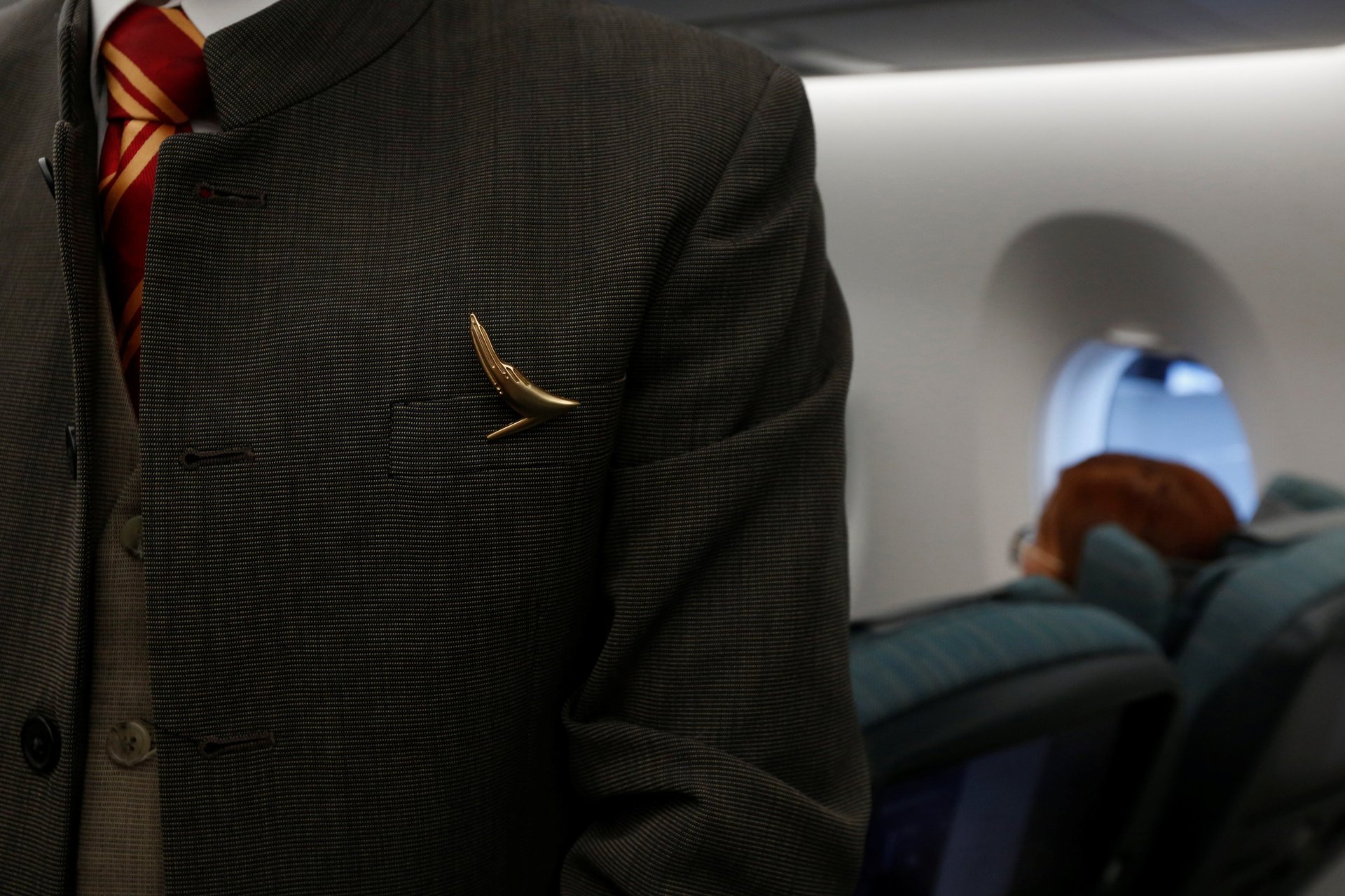Hong Kong’s woes mean 27,000 Cathay Pacific workers are being asked to go on unpaid leave
The 27,000 employees of Cathay Pacific Airway each have a tricky decision to make: Take three weeks’ voluntary unpaid leave between March and June, or risk layoffs and, perhaps, the collapse of Hong Kong’s largest airline.


The 27,000 employees of Cathay Pacific Airway each have a tricky decision to make: Take three weeks’ voluntary unpaid leave between March and June, or risk layoffs and, perhaps, the collapse of Hong Kong’s largest airline.
It’s a big ask for a relatively small return. For the beleaguered airline, already brought to its knees by months of anti-government protests in Hong Kong, this unpaid leave will scarcely shift the balance. Based on last year’s wages, Cathay Pacific would save only $163 million (paywall) at most. Its annual operating expenses, meanwhile, are about $14 billion. Even before the protests, margins were tight: In 2017, the airline adopted a cost-saving turnaround plan, with the aim of reducing losses. Plunging traffic, which was down by 46% year-on-year in Nov. 2019, has only made things harder.
The addition of the outbreak of coronavirus, which hit at a peak time for Chinese tourism, makes the situation “just as grave” as the global financial crisis of 2009, Augustus Tang Kin-wing, Cathay Pacific’s CEO, told employees in a video message. “We don’t know how long this will last,” he said. “With such an uncertain outlook, preserving our cash is now key to protecting our business.” With so much on the line, every little helps, he said.
Over recent months, as tourism to Hong Kong waned, the airline took a new tack: offering inexpensive flights between Europe and Asia or Australia with a connection in Hong Kong. Now, with governments all over the world advising against travel to China, even visiting its airport is an undesirable option for most global travelers. It has now slashed its flight capacity by 30% over the next two months, including a 90% drop in capacity to mainland China. While other Chinese airlines may also be forced to adjust their schedule, Cathay’s recent bad luck has left it more vulnerable than its competitors , which are unlikely to make the same demands of their staff.
There is the only the faintest glimmer of a silver lining. Cathay’s cargo business, which contributes about 25% of its annual revenues, will be positively affected by the crisis—in a very indirect way. Fuel prices are already down; grounded planes all over the world will knock them even further, allowing those in the business of air freight, which is largely insulated from virus concerns, to enjoy a somewhat more sizable profit.